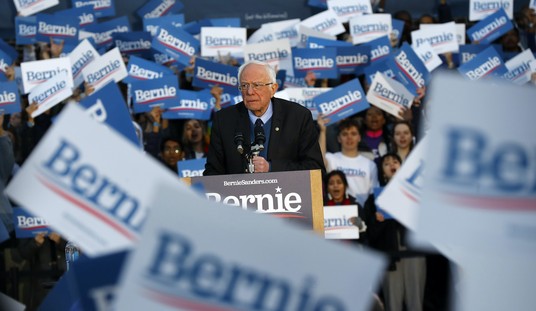Rumor has had Barack Obama secretly hoping for a Republican victory in the midterms, a pet conspiracy theory that propagated among House Democrats during the winter of their discontent over ObamaCare. Ever since, pundits have convinced themselves that having a foil in a Republican-controlled House would allow Obama to blame the GOP for any gridlock, and use that to get himself re-elected in 2012. Bill Clinton did something similar when he won a standoff and a government shutdown with Newt Gingrich in 1995.
I’m reminded of this theory in Howard Kurtz question of whether Americans see gridlock as a good choice after experiencing the runaway Democratic agenda:
Democrats, who are acutely aware of the president’s sinking poll numbers, flush out the argument this way:
Sure, the country blames us for the rotten economy and thinks we spent too much time on health care, but what’s the GOP alternative? They’re the party of no, they don’t offer a positive agenda, and they did crash the economy at the end of Bush’s term — after years of overspending. Polls show the public is as fed up with the Republicans as they are with us. Obama is trying to do the right thing — the stimulus did create plenty of jobs — and the Republicans shouldn’t be rewarded for being obstructionists.
But what if Americans like obstructionists?
By which I mean, what if the country, having sampled all-Democratic rule in Washington, would much prefer divided government? …
That’s why the Obama rhetoric about giving back the keys may fall flat: A Republican Congress wouldn’t be running things. It would be more in the role of backseat driver. GOP lawmakers could schedule hearings, issue subpoenas, keep bills off the floor — but would have a hard time passing anything over a presidential veto.
That could be a formula for gridlock — but if enough voters are angry at big government, they might prefer a government that doesn’t do much.
That’s one part of the problem and blessing of a GOP House for Obama. If voters remain as angry at Democrats as they are today, an obstructionist Congress will become pretty popular over the succeeding two years before Obama’s re-election campaign. On the other hand, with that in mind, independent voters might like the idea of divided government enough to favor Obama rather than a Republican in 2012 under those circumstances.
Republicans could change the paradigm, however. In all of these calculations, it’s assumed that the GOP will indulge in an orgy of hearings and obstructionism rather than using the chance to actually govern. What happens when the Republican House starts passing legislation that repeals ObamaCare and issues its own free-market reforms? When Paul Ryan crafts a budget that reduces government? When a John Boehner-led caucus takes on serious entitlement reform, and then sends all of these to a Democratic-controlled Senate and the White House?
What will happen is that Democrats will have to obstruct the Republican agenda, either through blocking it in the Senate or with presidential vetoes. The story changes from supposed Republican obstructionism to actual Democratic obstructionism. And that puts a very different spin on 2012, when Democrats will be even more vulnerable in the Senate thanks to their 2006 class coming up for re-election and Obama having to run for office again. If the Republicans use the time and the control of the House floor to advance a positive, center-right agenda that gets obsessively blocked by the opposition, expect an even bigger turnout from the Tea Party crowd and potentially a second realigning election cycle in two years.
That depends on Republican leadership taking control of its caucus and focusing on a positive agenda if they get the Speaker’s gavel back in 2011. If they do, Republicans may win the battle of obstruction and turn Obama into a one-term blunder.








Join the conversation as a VIP Member